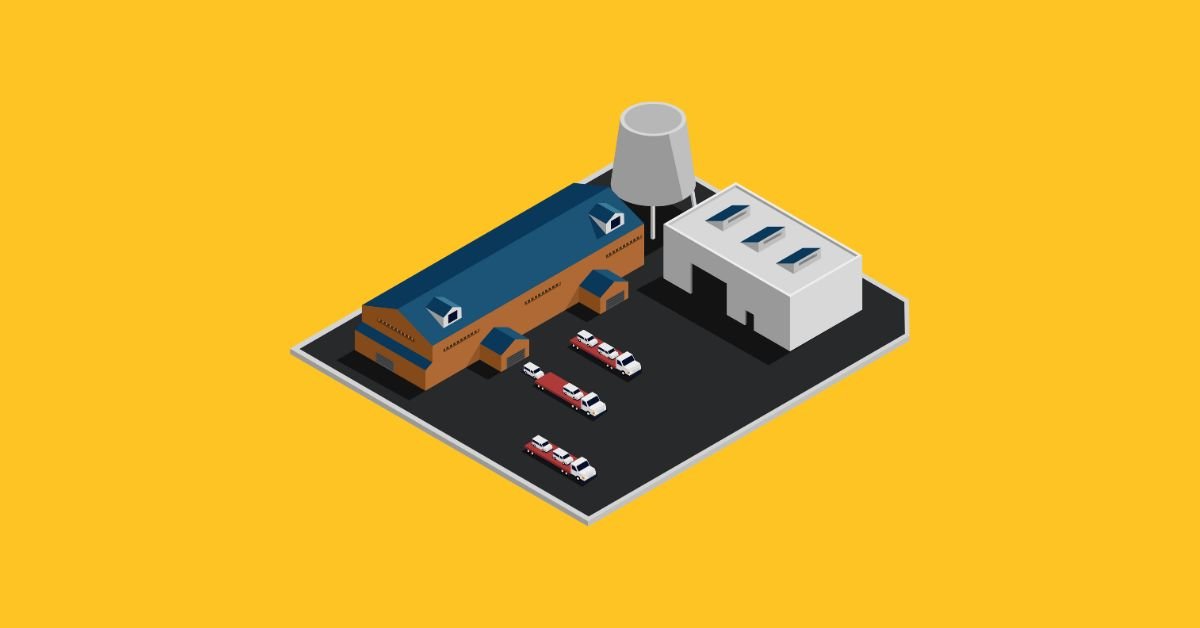In today’s digital age, having a strong online presence is no longer a luxury – it’s a necessity. Did you know that a whopping 88% of consumers pre-research products and services online before visiting a business in person? [Fashion United]. That means your website is often the first impression potential customers will have of your brand.
A well-designed website can significantly boost your brand image, generate leads, and ultimately drive sales. But not all websites are created equal. While website builders offer pre-made templates that can get you online quickly, they lack the flexibility and customization options of a custom website development project.
Custom website development allows you to tailor your website to your specific needs and target audience. However, with this level of control comes the question: how much does it cost? The truth is, the cost of custom website development can vary depending on several factors, which we’ll explore in detail throughout this blog post.
Understanding the Cost Factors
The price tag for your custom website won’t be a one-size-fits-all situation. Several factors come into play when determining the final cost. Here’s a breakdown of some key elements that influence the cost of custom website development:
Website Size and Complexity
Number of Pages: A larger website with more pages will naturally require more development time and resources, impacting the overall cost.
Features and Functionality: Websites with features like contact forms, e-commerce functionality, or booking systems will involve more complex development and likely cost more than simpler brochure-ware websites.
Interactivity: Highly interactive websites with animations, custom graphics, or user-generated content features will require advanced development skills and potentially push the budget higher.
However, there’s good news! If you’re looking for a more affordable custom website development option, a smaller website with basic functionality can be a great starting point. This is a good option for businesses with a well-defined online presence or those focusing on a specific product or service.
Design and Development Expertise
Another major factor influencing the cost of custom website development is the experience level of the developers you choose to work with.
Senior Developers vs. Junior Developers: Seasoned developers with extensive experience will naturally command a higher hourly rate compared to junior developers who are still building their portfolios. This doesn’t necessarily mean junior developers can’t create fantastic websites, but the development process might take longer, potentially impacting the overall cost.
Web Design: The level of design complexity will also play a role. A simple, clean website design will require less time and resources compared to a website with intricate graphics, custom animations, or a unique user interface.
While a high-end design can certainly elevate your brand image, it’s important to find a balance between aesthetics and functionality within your budget.
Additional Considerations
Beyond the core development costs, there are also some additional ongoing expenses to factor into your website budget:
Website Hosting: This is essentially the storage space for your website’s files and data. Hosting plans come in various tiers with different features and pricing structures.
Website Maintenance: Even after launch, websites require ongoing maintenance to ensure smooth operation, security updates, and potential bug fixes. This maintenance can be handled internally by your team or outsourced to a web development agency.
Security Certificates: For websites that handle sensitive information like credit card details, an SSL certificate is essential for encrypting data and building trust with your audience. SSL certificates come with varying costs depending on the level of validation required.
Finding Budget-Friendly Solutions
While these ongoing costs can add up, there are ways to be budget-conscious. Some web development agencies offer bundled packages that include hosting and maintenance for a fixed monthly fee. Additionally, exploring options with “budget custom website development companies” can be a good strategy, particularly for smaller businesses or those starting out. These companies may have pre-built templates or streamlined development processes that can keep costs down.
Building Your Budget for a Custom Website
So, you’ve familiarized yourself with the various factors that influence the cost of custom website development (Main Keyword: Cost of Custom Website Development). Now it’s time to translate that knowledge into building a realistic budget for your project. Here are some key strategies to consider:
Set Realistic Goals and Priorities
The first step is to clearly define your website’s goals and target audience. What are you hoping to achieve with your website? Is it to generate leads, increase brand awareness, or drive online sales? Understanding your goals will help determine the features and functionalities your website needs, ultimately impacting the development cost.
Who are you trying to reach? Knowing your target audience allows you to tailor the website’s design, content, and user experience to resonate with them. This focus will ensure you’re not spending money on unnecessary features that may not be relevant to your audience.
Research and Compare Pricing
Once you have a clear vision for your website, it’s time to delve into the pricing landscape. Here’s how to effectively research and compare costs for custom website development:
Get Quotes: Don’t be afraid to reach out to several web development agencies or freelance developers for quotes on your project. This will give you a good sense of the average pricing structure in your area and allow you to compare different skillsets and experience levels.
Be Transparent About Your Needs: When requesting quotes, be as upfront as possible about your website’s goals, desired features, and the number of pages. The more information you provide, the more accurate the quotes you’ll receive from potential development partners.
Consider Reviews and Portfolios: Research the reputation of the agencies or developers you’re considering. Look for online reviews, check out their portfolios to see if their design aesthetic aligns with your vision, and don’t hesitate to ask for references from past clients.
By following these steps, you’ll gain valuable insights into the pricing landscape and be better equipped to find a development partner that fits your budget and project needs.
Explore Cost-Saving Strategies
Even with a clear budget in mind, there are still ways to optimize your spending when it comes to custom website development:
Staged Development: Instead of building the entire website at once, consider a staged development approach. This involves prioritizing core features and functionalities in the initial phase, with the option to add more complex features later as your budget allows. This approach allows you to launch a functional website sooner and spread out the development costs over time.
Content Management Systems (CMS): Utilizing a Content Management System (CMS) like WordPress can be a cost-effective strategy. A CMS empowers you or your team to easily update website content (text, images) without needing ongoing developer assistance. While there might be initial setup costs for the CMS platform itself, it can save you money in the long run on maintenance and content updates.
Finding the Right Balance
Remember, the goal isn’t to cut corners and sacrifice quality for the sake of a lower price tag. However, by being strategic and exploring these cost-saving options, you can ensure you get the most value out of your investment in custom website development.
Consider Long-Term
While the initial cost of custom website development might seem like a significant investment, it’s crucial to consider the website’s long-term value proposition. A well-designed and developed website can deliver significant benefits for your business that extend far beyond the initial price tag. Here’s how:
Increased Conversions and Sales: A user-friendly website with a clear call to action can effectively convert visitors into leads or paying customers. By optimizing your website for conversions, you’ll see a return on your investment (ROI) as your website generates sales and grows your business.
Improved Brand Image and Credibility: A professional website with a polished design and high-quality content portrays a trustworthy and established brand image. This builds trust with potential customers and positions you as a leader in your industry. A well-crafted website can significantly enhance your brand reputation and give you a competitive edge.
Scalability and Future Growth: Unlike a template-based website, a custom website can grow and adapt alongside your business. Custom development allows for future expansion, adding new features and functionalities as your needs evolve. This ensures your website remains relevant and effective in the long run, saving you money on rebuilding or redesigning the website down the line.
By focusing on the long-term value proposition of a custom website, you’re making an investment in the future success and growth of your business. This shift in perspective can help you justify the initial cost and see website development as a strategic investment, not just an expense.
The Long-Term Value Proposition of a Custom Website
As we’ve discussed, the cost of custom website development can vary depending on several factors. However, it’s important to look beyond the initial price tag and consider the long-term value proposition a custom website brings to your business. Here’s how a well-designed and developed website can deliver lasting benefits:
Increased Conversions and Sales
A website isn’t just a digital brochure; it’s a powerful marketing tool. Imagine a potential customer lands on your website. A user-friendly interface, clear navigation, and compelling calls to action can guide them through the sales funnel, transforming them from visitors into leads or paying customers. By optimizing your website for conversions, you’ll see a return on your investment (ROI) as your website generates sales and fuels your business growth.
Improved Brand Image and Credibility
In today’s digital world, your website is often the first impression potential customers have of your brand. A professional website with a polished design, high-quality content, and a focus on user experience portrays a trustworthy and established brand image. This builds trust with potential customers and positions you as a leader in your industry. A well-crafted website can significantly enhance your brand reputation and give you a competitive edge, ultimately leading to more qualified leads and conversions.
Scalability and Future Growth
Unlike a template-based website that can feel restrictive, a custom website is built to grow alongside your business. Custom development allows for future expansion and flexibility. You can add new features and functionalities as your needs evolve, whether it’s integrating an e-commerce platform to start selling online or adding a members-only section for exclusive content. This ensures your website remains relevant and effective in the long run, saving you money on rebuilding or redesigning the website down the line. A custom website is a future-proof investment that can adapt and support your business for years to come.
By focusing on the long-term value proposition of a custom website, you’re not just building a website; you’re making an investment in the future success and growth of your business. This shift in perspective can help you justify the initial cost and see website development as a strategic investment, not just an expense.
Final Summary
Throughout this blog post, we’ve explored the various factors that influence the cost of custom website development (Main Keyword: Cost of Custom Website Development), from website size and complexity to design expertise and ongoing maintenance. We’ve also discussed budgeting strategies and cost-saving tactics to help you get the most out of your investment.
Remember, while the upfront cost might seem like a hurdle, a custom website offers significant long-term value. It can boost your brand image, drive conversions and sales, and provide the scalability to grow alongside your business.
The key is to find a web development partner who understands your goals and budget. By clearly defining your needs and comparing quotes, you can ensure you get a website that delivers the functionality and design you desire at a price that aligns with your budget.
Ready to discuss your custom website project? Contact us today for a free consultation! We’ll work with you to understand your vision and create a website that propels your business forward.



